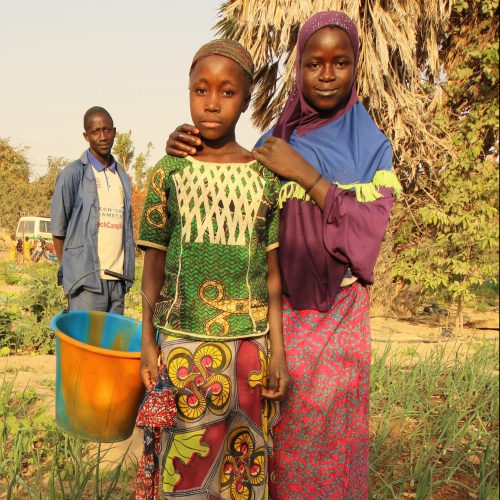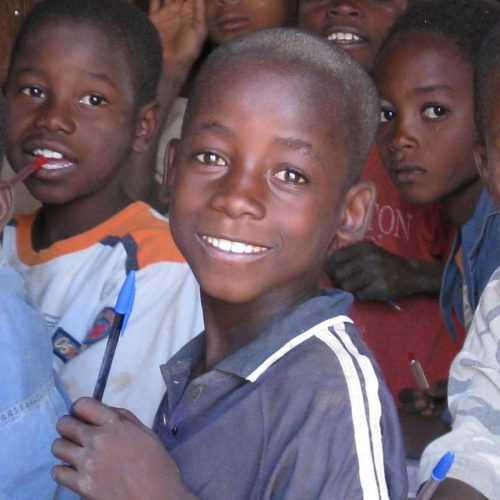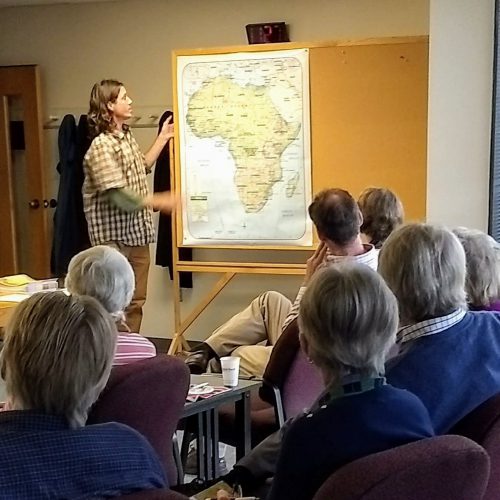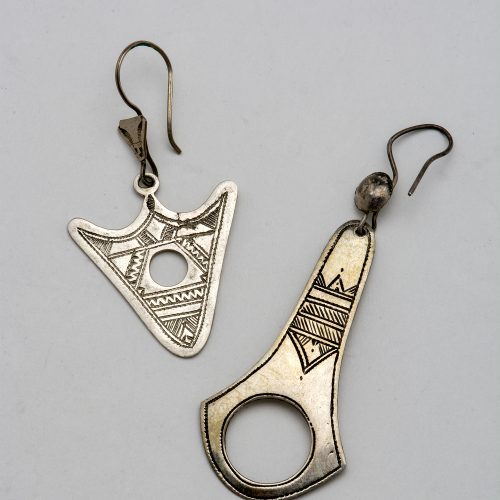Across the African continent, there are an estimated 20,000 ICU beds – that’s fewer than 2 per 100,000 people. All sub-Saharan Africa, with over 1 billion people, will need to make do with as few as 3,500 ventilators. The United States has 29 ICU beds per 100,000 people and 160,000 ventilators for its 328 million people. While the COVID-19 pandemic is global, the experience of it is not the same and the ability to respond isn’t either.
Although there are huge disparities within our own country, the differences with Sub-Saharan Africa are even greater. American students who don’t have a computer or internet at home will lose educational ground; many African students will simply never return to school. While too many Americans are now depending on food banks, millions of Africans could face starvation if food markets and supply chains shut down. Now is the time for the U.S. government and caring Americans to step in to provide early and significant help.
Landlocked Niger has seen 713 cases in just over a month, and with few doctors and little equipment to treat sick patients, the country is rightly focused on limiting the spread of the virus. The severe travel restrictions, however, are preventing food, medicine, and necessities like soap from reaching rural villages. Food prices are skyrocketing just as remittances from relatives working outside the country are drying up. The World Food Program warns of “famines of biblical proportions.” And there is no safety net in Sub-Saharan Africa as we have in the U.S.
Boube Aw – the Director of Programs for a small non-profit organization – Rain for the Sahel and Sahara—is worried. His team is working rapidly to shift from supporting education and skills training to promoting basic hygiene and distributing emergency food aid. He shared with us a Nigerien saying, “an empty stomach doesn’t have ears.” If the rural people RAIN serves can’t find food, they can’t heed the guidance to shelter at home, increasing the likelihood that the virus will spread.
Helping the most marginalized is a moral imperative – in our interconnected world it is also in our self-interest. Providing help now will avoid a far more expensive humanitarian disaster and more desperate migrant flows while earning good will and greater cooperation on matters that affect U.S. national security and prosperity, like countering terrorism.
We have seen firsthand what a difference it makes for the U.S. to provide early and substantial aid in a crisis. It enables responders to mobilize quickly and creates momentum for others to join the effort. Bold U.S. action in response to the 2014 Ebola crisis in West Africa brought the United Kingdom and France on board to help stop the disease and forestalled a more severe food security and economic shock.
We also know that government aid agencies such as the United States Agency for International Development (USAID), large and small non-profit organizations (NGOs) and, increasingly, the private sector, all have a crucial role in reinforcing the efforts of developing countries and their citizens to survive. All actors in the aid ecosystem must work together and leverage their comparative advantages. In Mali, international organizations funded by the U.S. and European allies successfully drove back a potential famine in 2012 by working closely with the Malian government and local NGOs that knew how to reach communities with what they needed most.
We call on America – and Americans – to stand with countries less able than ours, even as we continue to fight the pandemic here at home. The Trump Administration should request and Congress should provide immediate and robust humanitarian funding to USAID for the best chance of curbing the virus and preventing hunger and economic devastation. Individual Americans who are able to give should support organizations with global logistical reach as well as small, locally-connected non-profits with the relationships and structure to reach remote communities directly. As Boube reminds us, people everywhere are striving to stay healthy and maintain their livelihoods; it is in the interest of those fortunate enough to have more to bolster those with less so we all survive.
Written by Susan Fine, former USAID Senior Deputy Assistant Administrator and Director for Senegal and the Sahel, and Rebecca Black, former USAID Director in Cambodia and Mali. Susan & Rebecca serve on the Board of Rain for the Sahel and Sahara.




